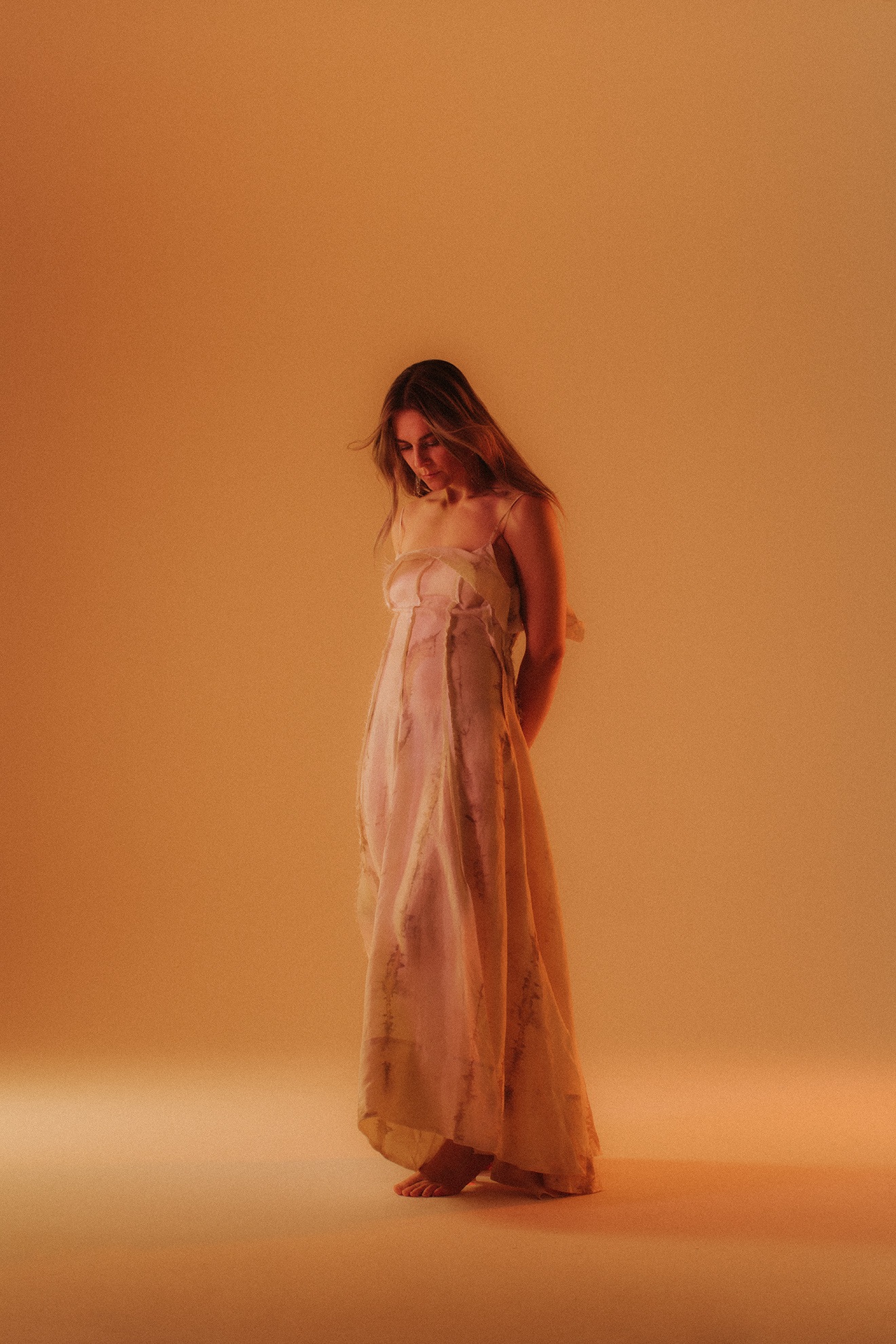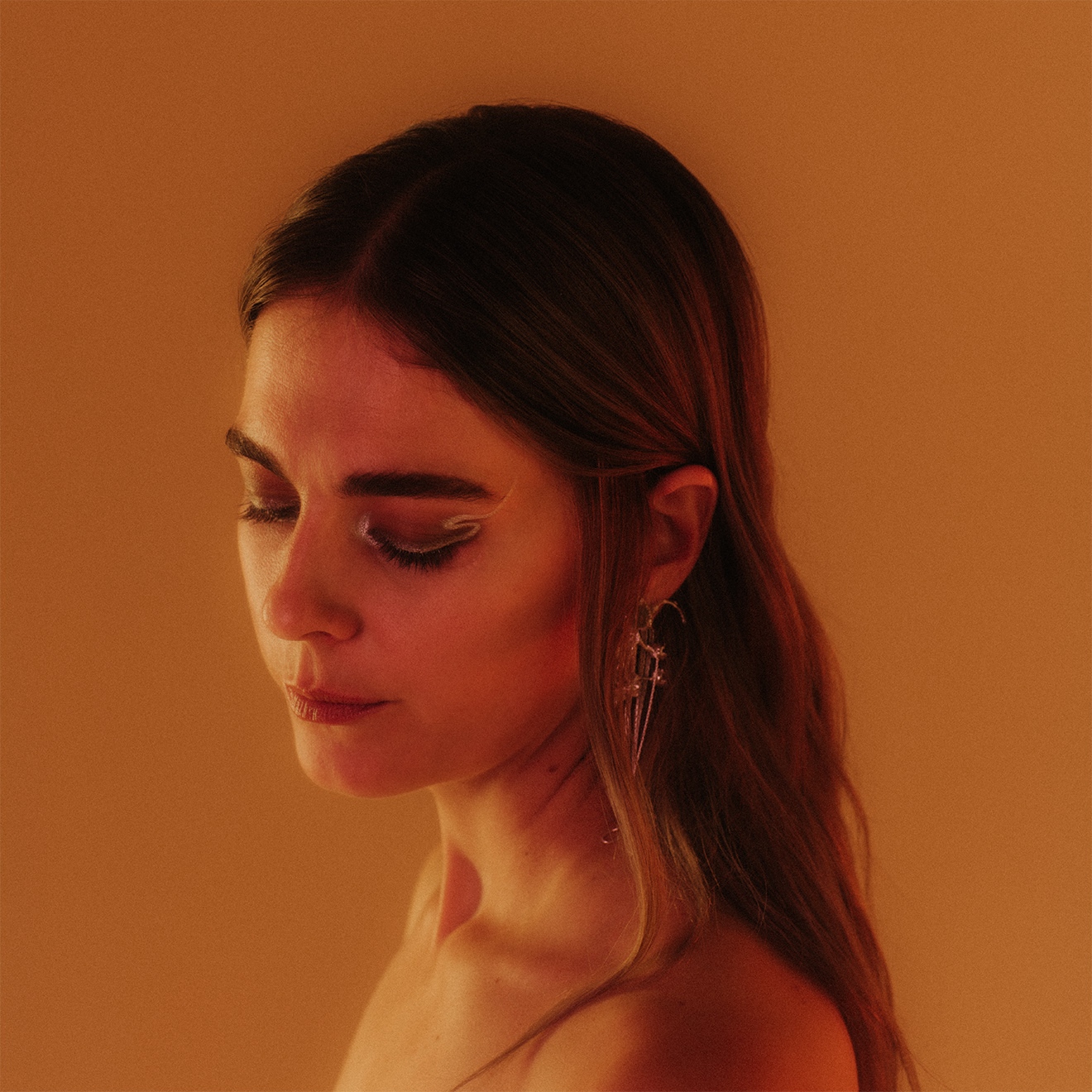 Music
Music
Listen to Nicky Elisabeth's playlist of dancefloor tracks that meaningfully move you
The Dutch-born DJ celebrates her move into production with a selection of tracks that are less about creating ‘big moments’ and more about leaving a ‘lasting impression’
For Nicky Elisabeth, the process of writing her debut album, ‘The Way of Love’, was one of the most “transformative experiences” of her life. Not only did it challenge her creatively – elevating her skills in piano, production and singing – but it also involved a large degree of self-excavation that would be intimidating to anyone.
As a woman dealing with the inequalities of the music industry, Elisabeth knew she had to overcome feelings of insecurity and self-doubt in order to produce something that was true to herself. In doing so, the DJ-turned-producer has carved out a sound that balances her background in Amsterdam’s underground techno scene, with her more recent discovery of melodic dance and pop music.
Having grown up in Belgium, Elisabeth moved back to her native Holland as a student, finding herself entrenched in the local club scenes of its capital. Landing her first residency as a DJ at the now-closed De Marktkantine, the budding musician honed her craft, learning how to tell a story through her sets – a skill that would later come in handy as she moved into songwriting and production. From there, Elisabeth went on to play a number of esteemed venues and events including Awakenings, fabric, Printworks, Amsterdam Dance Event, Lost Village and DGTL, evolving from harder, stripped-back techno to deeper, more joyous sounds.
read this next: The 10 best trance compilations from the golden age
2021 saw the artist’s first venture into production. With its relentless, punching bassline gradually fading into something softer and more euphoric, ‘Celeste’ perfectly exemplified the artist’s gradual transition away from the tough sounds she had grown up with. Then came ‘Fading’ and ‘Dusk’ of 2023, both of which are included on the new album and demonstrate Elisabeth’s growing confidence to embrace a more pop-aligned style of dance music, with a greater focus on vocals.
With the album finally here, released on September 20 via Anjunadeep, Elisabeth’s signature style shines throughout the 13-track record, blending pop, techno, house and electronica – but always with an emphasis on joy, freedom and self-expression.
Now based between London and Amsterdam, the artist’s appreciation for underground club culture is still very much present and she has curated a playlist that centres on “those intricate, intimate moments on the dancefloor… that invite you to close your eyes and lose yourself in the music”.
But first, we talked to Elisabeth about her journey into production and how it helped her learn more about herself.

You have been a DJ for over a decade, and in recent years have made the step into music production. What inspired that creative move and how has your career as a DJ shaped your sound?
Creating music always felt like my true calling, so moving from DJing to music production was a natural next step. I’ve always had a deep urge to sing and create, but for a while, I think I was holding myself back from fully pursuing that. DJing, at the time, was a way for me to stay close to music. I loved the nightlife and club culture, and it provided a space for me to be surrounded by music, even though I wasn’t formally trained in singing or instruments like the piano.
As my passion for DJing grew, it allowed me the time to develop other creative skills. But eventually, I reached a point where I felt that, while DJing was incredibly fulfilling, it wasn’t enough to express the full range of my creativity. That’s when I turned to music production. My early tracks were very much made for the dancefloor, but I also had this growing need to explore more pop-leaning music.
Someone once told me that I’m a pop artist who got lost in dance music, and in a way, they’re right. But I think that’s what makes my sound distinct. I’ve always been drawn to electronic music with a pop sensibility, and I think that balance has defined my style.
Now, as I look ahead, I’m excited to lean back into more club-oriented music while also incorporating everything I’ve learned from writing my last album. The next music is definitely going to be more dancefloor friendly and will allow me to play my own records in my DJ sets, which is something I’m really looking forward to.
Read this next: Anyasa is bringing Indian traditional music and electronic sounds to the world
You said that while writing the album you “experienced many creative and personal obstacles”, do you think that the process of writing itself helped you work through these issues?
Writing this album was one of the most transformative experiences of my life. Creating something so personal forces you to look inward and connect with who you truly are. I’ve always felt that art reflects your inner world – if you’re not in tune with yourself, it will show in your work.
Throughout the process, I had to develop confidence – not just in my creativity but in myself. Completing this album meant stepping into my power and trusting my instincts. In the journey to finish, I learned one of the most valuable lessons: you can’t achieve the unimaginable without conviction. Even when doubt surfaced, it was that inner drive that pushed me to commit fully and bring my vision to life.
Much of the struggle came from self-doubt – feeling like I couldn’t create what I had in mind. But there was always a part of me that knew I had to follow through. Despite uncertainty, I kept moving forward, knowing that if I didn’t, this album would never exist.
By persevering and dedicating the time, seeing the album completed became a powerful reminder of my own potential. The entire process – overcoming those challenges and staying the course – was incredibly rewarding.

On your debut album, you touch on themes like self-love, acceptance, empowerment, self-belief, and living your truth… Do you think that dance music and club culture can help to encourage these emotions?
I’ve always believed that dance music and club culture have this incredible ability to spark emotions like self-love, acceptance, and empowerment. When I first stepped into those spaces at 18, it was a revelation – I’d never felt so free to explore who I was and express myself in ways I couldn’t in my hometown. Those spaces allowed me to connect with a deeper sense of identity, and there’s a kind of raw, unfiltered energy in those moments that’s hard to find anywhere else.
Recently, though, I’ve noticed that the events that seem to go viral are these huge raves where the focus is more on the spectacle – everyone with their hands in the air, almost as if it’s all about creating a picture-perfect moment. Personally, I feel that when there’s so much pressure for everything to look and feel like a show, we lose the essence of what club culture is really about: music, freedom, expression, and art.
For me, it’s not about looking spectacular or making sure everyone is having the time of their lives on display; it’s about creating a space where people can just be and be inspired. A space where there’s no pressure to perform or fit into any mold – just the freedom to let go and express yourself however you feel in that moment. That’s the kind of club culture that truly resonates with me, and I’d love to see more spaces where people feel that same freedom.
Read this next: Thirst for freedom: Kyiv's queer clubbing community returns to the dancefloor
You’re based between Amsterdam and London, how have these cities shaped your sound, respectively?
Amsterdam was where my love for dance music first began. In my 20s, while studying and living there, I immersed myself in the techno and rave scenes. Those experiences left a lasting impact, but over time, I found myself drawn to more melodic dance music. That’s really where my musical journey took off, so this city will always hold a special place in my heart.
London, however, brings a different kind of energy. It feels more vibrant and full of possibility right now. The influence of the UK scene has definitely made its way into my recent work. Artists like James Blake, Overmono, and Bloc Party have been shaping my sound in new and exciting ways. There’s something about the pulse of the city – its music, its nightlife – that has seeped into my creativity, and I’m curious to see how that energy will continue to inspire me.
Can you tell us a bit about the playlist you have curated? What can we expect to hear and where is it best to listen to?
The playlist I’ve curated is centered around those intricate, intimate moments on the dancefloor – the tracks that invite you to close your eyes and lose yourself in the music. It’s not about the biggest, most obvious moments, but rather the melodic, special ones that weave throughout the night. These are the kinds of tracks that may not always get the loudest reactions, but they leave a lasting impression. With so much focus nowadays on how things look on camera, I wanted this playlist to bring the focus back to what truly matters — how the music makes you feel. It’s a reminder to let the music move you in a deeper, more meaningful way.
‘The Way of Love’ is out now via Ajunadeep, check it here
Meena Sears is Mixmag's Digital Intern, follow her on Instagram


